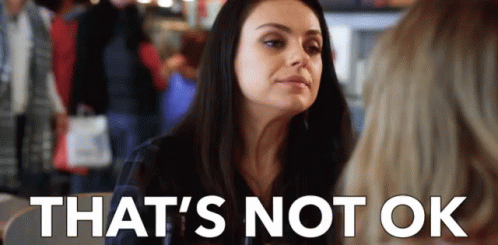From Hong Kong's wealth gap to snacking on bugs – here's your weekly round-up
Although Hong Kong ranks as one of the world's richest cities, it still deals with income and wealth inequality.

A few minutes every morning is all you need.
Stay up to date on the world's Headlines and Human Stories. It's fun, it's factual, it's fluff-free.
🤔What’s going on?
Hong Kong often ranks as one of the richest economies in the world. But, when looking at the bigger picture, the city still deals with income and wealth inequality. For example, as of 2020, the top 0.001% of the city’s population was making up more than half of its annual income, while the bottom 50% of the income bracket only contributes 11.6% of the city’s revenue, according to Standford’s Center on China’s Economy and Institutions. To put this into perspective, most other countries’ top 0.001% make up less than 35% of the national income.
These stats may be less of a shock when you picture Hong Kong’s iconic coffin homes, where single residents live in what is essentially the same size as a closet, or entire families occupy the space of a typical bedroom.
The Hurun Global Rich List 2024, a ranking of the world's US dollar billionaires for this year, ranks Hong Kong in seventh place globally, with 65 billionaires. On the opposite end of the spectrum, it’s estimated that more than 1.36 million people in the city live in poverty, according to Oxfam, an NGO trying to alleviate global poverty.
A paper from economist Thomas Pickety and Li Yang, a research fellow at the World Inequality Lab, found that a big driver of this wealth inequality was that wages before the 1997 handover grew on average by 7.5% each year, compared to 3.1% in the years up until 2018.
The COVID pandemic seems to have just made things worse. Oxfam found that the poorest 10% of people made 57.7 times less than the richest 10%, which is up from 34.3 times before the pandemic.
“Despite society returning to normal, the problem of wealth inequality has become increasingly serious, and the slow recovery among poor families has sounded alarm bells for society,” said Kalina Tsang, Director General of Oxfam Hong Kong in a press release.
🏡The challenges faced by the underprivileged
The city’s underprivileged population comes from very different situations, meaning improving their quality of life will require many different kinds of solutions.
For example, one of the city’s biggest challenges is how to support a rapidly aging population. You might have heard of Hong Kong’s “cardboard grannies,” who spend their days collecting cardboard and lugging heavy bundles across the city to sell to recycling companies for pennies. With the government expecting the number of people aged 65 or older to double to 2.37 million in 2036, or just over 30% of the population, the problem of an elderly population without enough support could get a lot worse before it gets better – especially if you take into account the falling fertility rate.
Naveen Sadhwani, the Founder of Hanuman Charity, a Hong Kong NGO that provides meals to the city’s underprivileged, explained to TMS that these elderly poor often experience a “feeling of being unnoticed and segregated from the society.” “Insights from our continuous charity walks since the pandemic in Hong Kong reveal that the elderly cardboard collectors want to be noticed, if not appreciated, but at least to be known and feel a sense of belonging to society. Many of them get neglected as they may be ‘dirty, dusty and unclean’ due to the working conditions and environment, compared to the normal working class in Hong Kong,” said Sadhwani.
As for homeless people in Hong Kong, Sadhwani said their situation can make other health problems worse, such as lack of sleep. He also said a common day-to-day stress for many of the city’s poorest people is worrying about having their things stolen.
“Living in such dire conditions, many of the people facing homelessness tend to be very particular and protective about what they have, be it a couple of Hong Kong dollars or even a bunch of plastic scraps,” he said.
“Their mindsets automatically change to how they must never let go of something they currently possess. Many of them live in fear of being stolen from or pickpocketed when they are asleep at night.”
Sadhwani was clear to add that the issues facing the city’s underprivileged communities go beyond just economic statistics and include cultural expectations and family dynamics.
📃What’s being done about it?
In May, the Hong Kong government announced a poverty alleviation scheme that it says will target 950,000 people based on household characteristics, employment and income conditions.
In a statement to TMS, Zoe Choi, an Information Officer for the Labour and Welfare department, said, “The current-term Government adopts the strategy of targeted poverty alleviation by directing resources to those most in need.”
Click here for the full article.
Some of the biggest Headlines this week
📰Russia/Ukraine update: A UN assessment has found that Ukraine’s largest childen’s hospital was directly hit by a Russian missile on Monday. Two adults died in the attack and 16 others, including seven children, were injured. The NATO summit also took place this week, and on July 11, after meeting with Ukraine’s President Zelenskiy, the US Department of Defense (DOD) announced another security package for Ukraine worth US$225 million, which includes artillery and weapons. On Thursday, Ukraine also urged NATO to lift restrictions on its use of long-range weapons against targets in Russia.
📩Iran’s new president: Last Saturday, moderate candidate Masoud Pezeshkian won Iran’s presidential runoff election. He has made promises to improve the nation’s relationship with the West as well as lighten up enforcement of the country’s mandatory headscarf laws. But Pezeshkian is a close supporter of Supreme Leader Ayatollah Ali Khamenei, who has the final say on all policy matters in Iran.
🚨South Korean lasers: South Korea will roll out laser weapons later this year to shoot down North Korean drones, saying it’s the first country to use these types of weapons in the military. The nation is calling it the “StarWars project.” The weapons disable flying drones by burning out electrical equipment by shining laser beams on them for 10-20 seconds.
👮♀️Hong Kong police get new guns: The Hong Kong police’s current service revolver, made by Smith and Wesson, has been in use since before the handover. But now, the force is getting equipped with new guns made in the mainland. The two new handguns are 9-millimeter Chinese-made pistols, the CF98-A and CS/LP5. The process could take about 10 years to fully switch everything over, according to inside sources speaking to The Standard. The new firearms will be easier to reload and have better grips and less recoil.
🧑⚖️Boeing to plead guilty: Aviation giant Boeing has been going through the wringer in recent years with two massive crashes that left hundreds dead and a series of other snafus that have damaged the corporation’s safety reputation. This week, Boeing agreed to plead guilty to a criminal fraud conspiracy charge and pay a fine of US$243.6 million in relation to a US investigation over the two fatal 737 MAX crashes. Pleading guilty helps Boeing avoid going to trial on the issue, but it could also harm the company’s ability to score government contracts in the future.
🐢Ninja turtle gang: On Tuesday, Malaysian authorities announced the arrest of six members of a global smuggling ring called the “Ninja Turtle Gang” during a house raid on July 2, where they seized about 200 smuggled tortoises and turtles. Some of the seized animals included the critically endangered Chinese striped-necked turtle, or “golden thread turtle” native to China, Taiwan, Laos and Vietnam.

🤷♂️Hong Kong apathy: An Employees Retraining Board survey covering 1,261 respondents, including homemakers and recent retirees, has found that more than a third of young Hong Kongers not working or studying have no plans to look for a job. About half of the interviewees, which were surveyed between last November and this March, expressed little interest in working. This is especially concerning as the city is dealing with a labor shortage across a variety of industries.
💰Singapore wealth gap: We reported this week on the wealth gap in Hong Kong. A recent report by UBS found Hong Kong’s wealth inequality has dropped about 6% in the last 15 years (though it’s still quite high compared to the global average). But that same report also noted that Singapore has reported an almost 23% increase in its wealth gap in the same period. Experts have said Hong Kong’s narrowing could be explained by the weak property market and population exodus the city has seen in recent years.
🐍Trouser snakes: Are those snakes in your pants, or are you just happy to see us? A man was caught by Chinese customs officers trying to smuggle over 100 live snakes in his pants. The reptiles were wrapped up in taped plastic bags, and they were reportedly all non-native species. On Tuesday, authorities said the man tried to get through a “no declaration channel” at a port between Hong Kong and Shenzhen. Ssssneaky.

🐛Bugs for dinner: Many experts have called insects the next big thing in protein consumption, as consuming them is said to be environmentally friendly and a great source of protein for both people and livestock. Now, Singapore has approved 16 species of insects as safe for people to eat, including crickets, grasshoppers, grubs, moth larvae and one species of honeybee. Other countries, like Thailand, China and India, are already snacking on insects, so this could be a sign of a more widespread trend in the future.
Enjoying our newsletter?
Forward it to a friend! After all, sharing is caring.
Anything else? Hit reply to send us feedback or say hello. We don't bite!
Written and put together by Kevin McSpadden, Christine Dulion, Elize Lanorias and Krystal Lai.




Comments ()